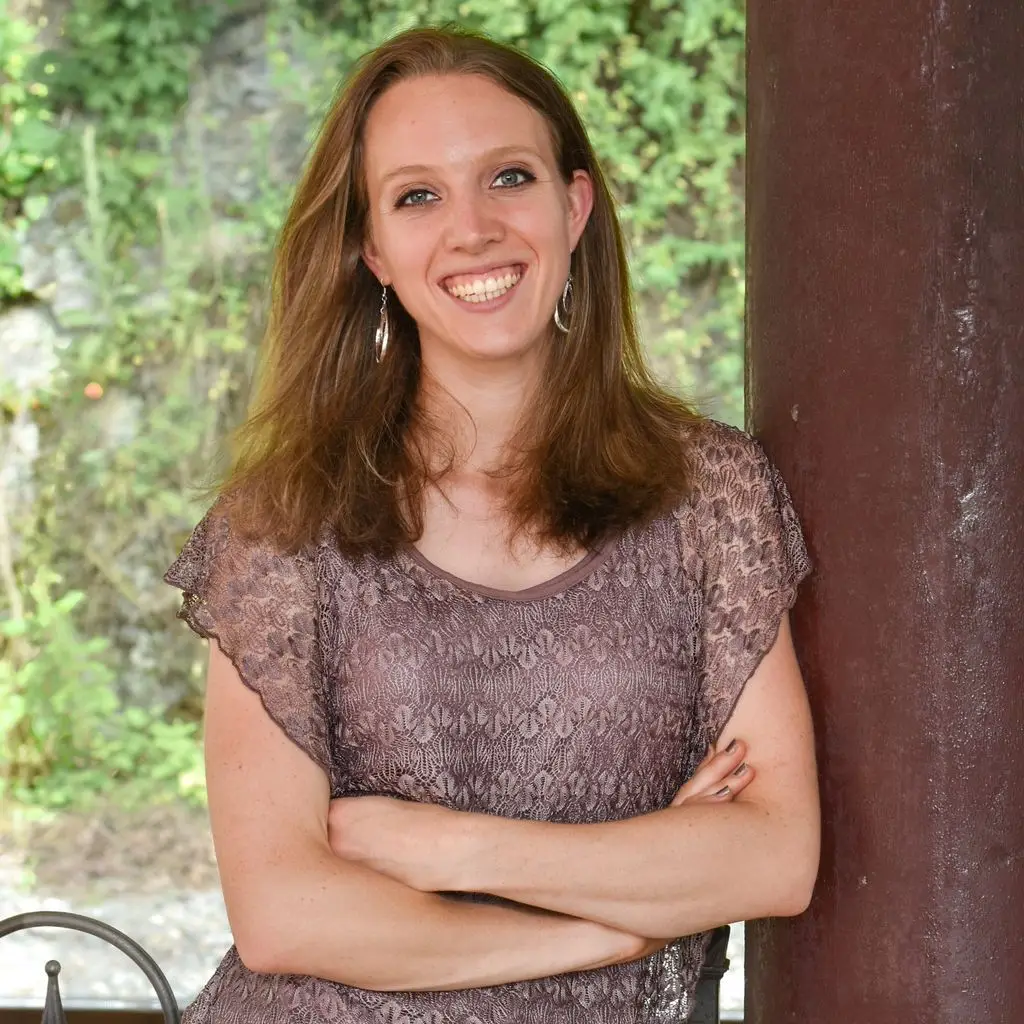Brave Enough to Be Invisible

This post was originally published on The Road to Brave.
The verbal scuffle echoed out of our bedroom and into the hall.
“You should let me have it.”
“It’s mine!”
“You’re being selfish!”
“You’re selfish!”
The future of education in your inbox.
Get productivity tips, commentary, and Unbound updates sent to you!
I glared at my seven-year-old sister with the air of aggrieved self-righteousness I’d mastered in my nine years of life. “I,” I proclaimed, fully believing every word, “am never selfish!”
Looking back, that bold childhood claim is nothing short of ridiculous. As if. With the benefit of hindsight, that statement was…let’s just say errant.
Embarrassingly, I have—in time past—been guilty of thinking that about pride too, which is also nothing short of ridiculous. I’m pretty sure claiming a lack of pride is the same as claiming “married bachelor” status. It can be easy to mask pride under false humility, a lack of confidence, self-deprecation, or even introverted or extraverted tendencies.
Here’s the befuddling thing to me. You can be someone (like me) who does not like being the center of attention. Who prefers a quiet corner to the stage, a few deep relationships to a crowd, and the option of melting under the table anytime a restaurant crew sang “Happy Birthday” during her growing up years. But that does not mean that we’re fine with a lack of recognition, a lack of prestige, or a lack of being noticed. Heavens, no.
It’s a paradox, but it’s true.
This is so embarrassing, but I’ve 100% been guilty of being in conversations and intentionally (but of course casually) dropping hints of things I’ve accomplished. Places I’ve been. Projects I did. Trying in some desperately ridiculous manner to boost my status, or at least get recognized for something that I think others don’t know I did.
Sometimes it’s really brave to be out in front of people. To let them see us without fear or pretense. But other times, the bravest thing we can do is to be invisible and be okay with it.
Jesus had some things to say about being seen.
There is a desire deep in the human heart to be known, to be understood, and to know that we have value. Which makes sense, given the fact that we were created to be fully seen and known by God as His precious children. I wonder sometimes if this is part of why we so desperately seek status and attention and achievement, attempting to meet that desire with effort that is already predestined for failure. We don’t like being the behind-the-scenes, not-recognized person. Our culture pushes status and wealth and prestige from the time we’re little. Teens and pre-teens are more and more frequently on America’s Got Talent. We’re to find our niche of near-perfection—acting or sports or academics or business prowess or whatever it may be—and run after it until we’re at the top of the game, standing on the red carpet with the world singing our name.
But what if sometimes it takes being invisible to change our corner of the world?
In Matthew 6, Jesus warned against practicing public righteousness with the sole goal of being seen by others. His followers were instead directed to give in secret, to pray in solitude, and to fast discreetly. Our hearts long for adulation and a “Well done!”, but that’s supposed to come from our heavenly Father, not from our Instagram followers.
The same goal of “being seen” often distorts and disrupts our efforts at faithful Christianity. Who wants to be the church janitor when you could be the celebrity pastor? Who wants to spend years discipling a single struggling teen when you could head up an entire youth ministry?
Don’t get me wrong—if God calls you to something in the public eye, you’d better darn well get hustling to obey. That’s His prerogative. But if He’s instead calling you to ordinary, everyday faithfulness that no one but Him sees, don’t ever forget that it’s often the quietest, seemingly “simplest” efforts of obedience that change the course of history. There are times it is not only okay but also appropriate to be invisible.
In fact, sometimes it’s downright necessary for us to remind our wayward hearts that true status has nothing to do with public or proclaimed saintliness. And sometimes we need that reminder not only for prayer and giving and fasting, but also for ministry and ushering and teaching and evangelizing.
Sometimes it is not the seen but the invisible that changes the world — or your world.
In his book Death By Living, N. D. Wilson recounts the tear-jerking story of a young schoolteacher—known only as “Miss Smith”—who noticed a struggling boy in her class. He’d already endured repeated blows from a hard early life, and now he faced the challenge of being several years behind in school. But this teacher saw the living, breathing soul behind an aching, embarrassed young man—someone with worth and value, someone made in the image of God Himself. She invested time, energy, love, and belief into this young man’s life, speaking truth to him and helping him develop academically until he could step into the world with hope. And in so doing she radically changed the life of this man—Wilson’s grandfather—in a way that ultimately led him to the woman he married and the family they built, leading down to Wilson and his own sons and daughters.
No one even knows the rest of her name.
And yet if it were not for this otherwise invisible young woman—with an entire story all her own the world doesn’t know, with a name no one remembers, with a full life lived and ended—Wilson himself, as well as his children, would never have existed.
One wonders how many other souls she touched.
And how many schoolteachers—or farmers—or midwives—or doctors—or neighbors—or soldiers—or brothers or sisters or friends—held a pen that wrote part of your story. How many people have changed your world, yet you’ve never even known they existed? How many people are invisible to you—and yet but for them, you would live differently or perhaps not at all?
In Unbound, the young adult training company I work with, this idea is extraordinary at ordinary©. It means that it is usually ordinary things, ordinary decisions, and ordinary people who do most of the world-shaping work around us. Sure, there are extraordinary circumstances that lead to extraordinary outcomes. But for the most part, it is the ordinary person who is extraordinarily faithful at ordinary things who creates the most extraordinary change in the world around them. In the lives around them.
In your life.
How many souls will your life touch, even if they never know your name?
Finally, just because something’s invisible doesn’t mean it didn’t happen.
This might sound really, really obvious. Kind of begs the question, “If a tree falls in the woods and no one hears it, did it make a sound?” Well, no duh!
But to be honest with you, this is something that only really came home for me in the last few years, during a mental wrestling match about the nature of humanity and free will and suffering and evil and goodness — those great challenging topics we almost all engage in. I was particularly wrestling with the seeming futility of righteous decisions that are crushed by wickedness, of innocent lives that are crushed by evil, of courageous acts overpowered by cruelty.
And to summarize a much longer wrestling match, one of the (seemingly obvious) things God put on my heart was this beautiful truth: that just because something doesn’t result in the outcome it should, or doesn’t get appropriate laudation, or isn’t seen publicly on this side of eternity—doesn’t mean it didn’t happen.
That just because a child rebels after years of dedicated love, or the teen is bullied for her morals, or the job fires you for your ethics, or you go to bed exhausted after a mental struggle for holiness that no one else saw, it does not render meaningless all the very, very right choices and decisions—often minute by minute—that were already made.
They happened.
God saw them.
They are not lost for eternity.
That because we are created in the image of God, our choices have unequivocal weight and responsibility. Neither outcome nor time changes that. And that means it is okay for things to be invisible, because that has nothing to do with whether or not they happened.
“Sometimes standing against evil is more important than defeating it. The greatest heroes stand because it is right to do so, not because they believe they will walk away with their lives. Such selfless courage is a victory in itself.”
N.D. Wilson
At the end of the day, whether you admit to wrestling with pride or (like my 9 year old self) vehemently pretend otherwise, it’s not easy to accept being invisible. But Jesus was okay with it, knowing His Father saw everything anyway. People have changed your world without your ever being aware of them. And just because something isn’t seen doesn’t mean it didn’t happen.
Sometimes it’s brave to be seen. But other times, it is brave to accept that we don’t have to be seen to make a difference. It is courageous to be able to go unnoticed by the world, knowing God doesn’t need our acts to be noticed in order to use them to change someone’s world.
This week, may we be brave enough to be invisible.

Victoria Schurter is the VP of Content and Development for Unbound. An Unbound graduate, Victoria has served in a variety of roles including student leadership, coaching, and in the Business and Leadership program. She is passionate about equipping young adults to recognize their potential, to know God, and make Him known in daily life.
When she’s not working on an Unbound project, you can find her scribbling on a novel, playing a favorite instrument, riding horses, watching a sunset, or dreaming up some new adventure that absolutely includes the Pacific coastline. One of the best parts of her world is walking alongside her fellow Unbound students as they make an eternal impact in their generation.


